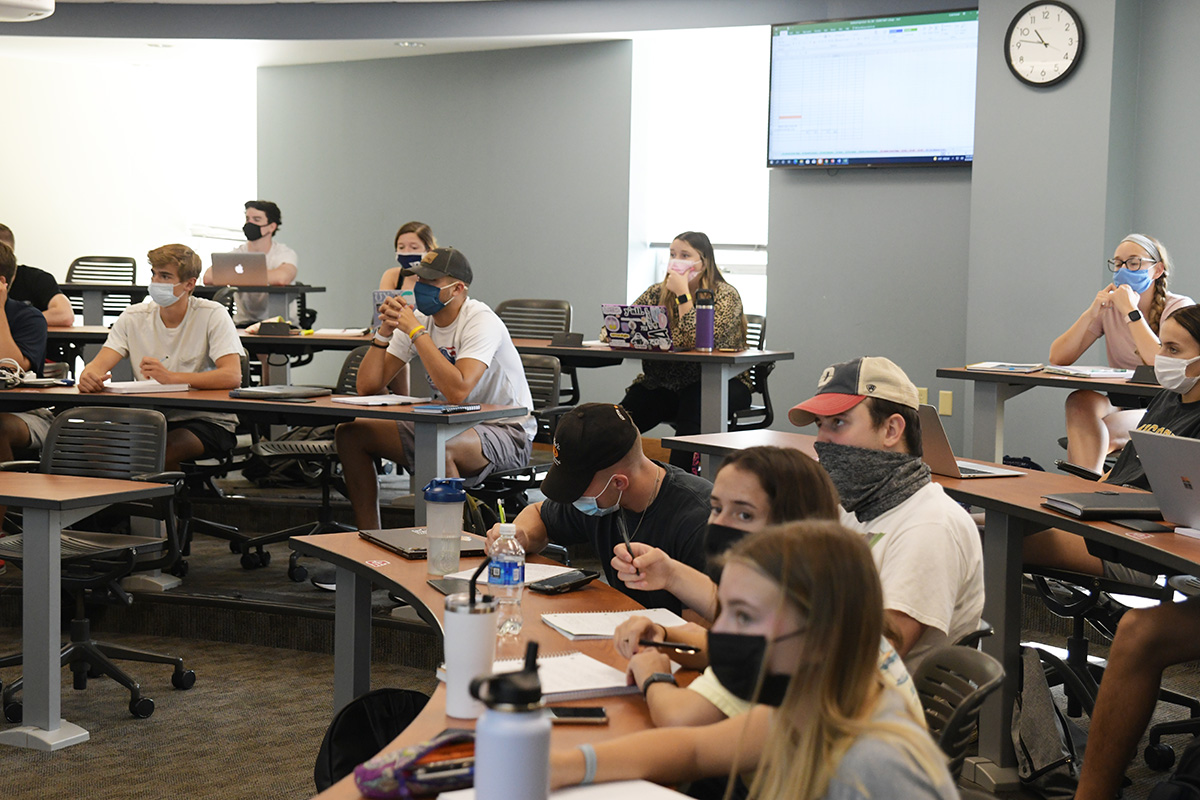Students in a class at the University of Dayton are given the chance to gain hands-on supercomputing experience.
Although many college students have access to a personal computer for their studies, it can be challenging for them to learn about how modern, complex computing systems are used in the science, engineering and technology fields without working with the systems directly.
Faculty members at the University of Dayton solve this problem by using the Ohio Supercomputer Center (OSC) in several courses and teaching clinics.
“OSC was an obvious choice because it is a parallel system and we are teaching about parallel computing,” said Tarek Taha, a professor in the Department of Electrical and Computer Engineering. “They have software set up so students have the exact same environment—it makes teaching simpler and more effective. Students are getting access to cutting-edge technologies.”
While computers previously processed one task at a time, today’s systems have multiple processors that require programmers to split and coordinate tasks that can be processed in parallel, Taha noted. It is a common issue that students will encounter in science and technology fields, with applications ranging from artificial intelligence to gaming.
“There’s a lot of demand for this in industry,” he said.
Not only does the parallel computing course give students first-hand experience programming with multiple processors, but it also helps them build confidence working in a supercomputer environment, said Tanvir Atahary, a research engineer in the School of Engineering. By working with OSC, students are exposed to the most current hardware and software in the field.
“I’ve taught this two semesters, and I got feedback from my students that they got a good job based on this class,” Atahary said.
Yangjie Qi is one University of Dayton student who has benefitted from OSC’s resources. Qi is working on designing next-generation computer chips that can be used in the artificial intelligence field. He has relied on OSC’s resources to simulate how different chip designs will perform. Taha estimates that work which would take months to complete in the school’s computer lab can be finished in one or two days by drawing on OSC’s parallel computing capabilities.
“If I use my own computer to run something it will be stuck there – it’s hard to do anything else during that time,” Qi said. By using OSC, “I can get 10 times the results – that really accelerates my research.”
Muhammad Usman, a professor of mathematics at the University of Dayton, also has used OSC in the classroom to help graduate students advance research projects. As Usman’s focus is on applied mathematics, students have tackled issues ranging from developing complex financial models to understanding patterns in biology.
One graduate student, Abigail Rodenburgh, used OSC for a math clinic project that compared various numerical methods for understanding how animals develop spots and stripes. She recalls that the analysis was so computationally intensive that she crashed a personal computer attempting to perform the work.
Usman set up the student with an OSC account so she could draw on the massive computer power of the Owens cluster to conduct the research. Rodenburgh, who had gained high performance computing (HPC) experience previously through a National Science Foundation program for college students, was comfortable using the terminal interface to submit basic jobs to OSC. As the project spanned a semester, she was grateful to be able to access the Center’s resources.
Rodenburgh earned a master’s degree in applied mathematics from the University of Dayton in 2019 and today works in the private sector conducting research with HPC. She recommends that other students consider gaining experience in this field.
“Having computational resources allows students to do work that is valuable to industry and provides the experience they need to get jobs where they can have a high impact,” Rodenburgh said.
Usman appreciates his students’ ability to access OSC, as well as the Center’s responsive customer service and its workshops that advance users’ skills in parallel computing.
“It’s very quick to get the account and to start the projects immediately,” Usman said.
The University of Dayton faculty members will continue to draw on OSC’s power for upcoming student projects in mathematics in engineering, with plans to include both undergraduate students and graduate students in the experience.
